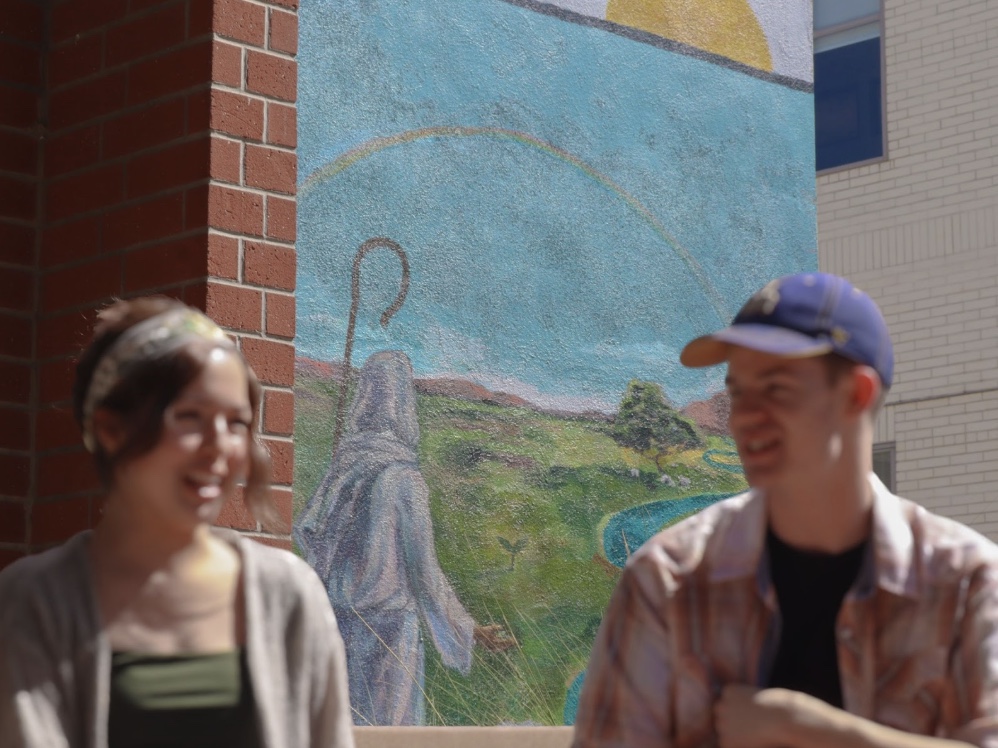Trevor Harwell, dismissed from Biola in Oct. 2010, is accused of installing spyware in computers that were then used to spy on young women. | Photo illustration Amber Amaya
Former Biola student Trevor Harwell, 20, was arrested Wednesday at his home in Fullerton after being accused of installing and accessing a spyware-like application called “Camcapture” on computer hard drives. Harwell was released later the same day on $50,000 bail.
The application allowed Harwell to control the webcams of infected computers, which he then used to view and photograph women who were either undressed or changing clothes, stated Sgt. Andrew Goodrich in a Fullerton police report.
Biola students and local residents affected
Biola University confirmed that victims included students of the university. There have also been six Orange County victims, and police have collected a number of hard drives and computers which will be undergoing forensic investigation, said Goodrich.
“Biola University’s Campus Safety Department has been cooperating with law enforcement agencies during the course of their investigation of Harwell, and will continue to assist law enforcement as needed,” said Biola University in a recent press release.
Spyware contained message
The views of women were often captured when victims brought their computer into the bathroom after a message connected with application suggested that users fix their internal sensor by “putting [their] laptop near hot steam for several minutes,” said the Fullerton police report.
According the Fullerton police report, Harwell stored the lewd photographs on a remote server and eventually downloaded them to his own computer.
During the investigation hundreds of thousands of these photographs were collected, said Goodrich in the report.
“What happened in this case was that people he personally knew handed their machines to him and he had full access,” said Gary Wytcherley, senior director of information technology at Biola University. “So this was not about hacking networks or computers. It’s troubling, because we do everything we can to protect our students but this was about individuals giving their computers to a trusted person who then broke that trust.”
Harwell dismissed from Biola last fall
Until 2010, Harwell was majoring in computer science at Biola University and was the president of Biola’s computer club called Networx. In October of last year, however, Harwell was dismissed from Biola University and began to attend Fullerton College.
The same day Harwell was dismissed, Biola IT worked with Campus Safety and Fullerton police to locate and deactivate the Camcapture software on victims’ computers.
Biola IT worked to fix victims’ computers
“Law enforcement in connection with Campus Safety identified the victims and then those students did bring their machines to the IT desk,” Wytcherley said. “We removed the hard drives as legal evidence and inspected their computers to remove and disable the software.”
Wytcherley also emphasized that Harwell never worked for Biola IT, nor did he ever have access to or tamper with any Biola University computers or servers.
Harwell’s involvement with computer repair company
Harwell worked for Rezitech Inc., a computer repair company located in North Orange Country and operated residentially on Macintosh computers.
“To Rezitech’s knowledge, Mr. Harwell did not commit any of the alleged offenses while performing work on behalf of Rezitech or while working on Rezitech computers or the computers of Rezitech customers,” confirmed a statement issued today by the company.
Fullerton police investigated Harwell almost a year
According to case details from the Orange County Superior Court of California, Harwell was accused of computer access and fraud violations as early as June of 2009, and there have been 12 similar counts dating through February 2010. It was not until the summer of 2010, however, when a Fullerton resident made a report to police about strange messages on his daughter’s computer, that the case truly came to light, according to the police report.
“[A computer is] not a simple device. You have to think about how you use your computer and how you have it set up,” said Goodrich. “A lot of people’s lives are on their computers; they have pictures and info on there. You should treat it like you treat your passport and not be so cavalier.”








